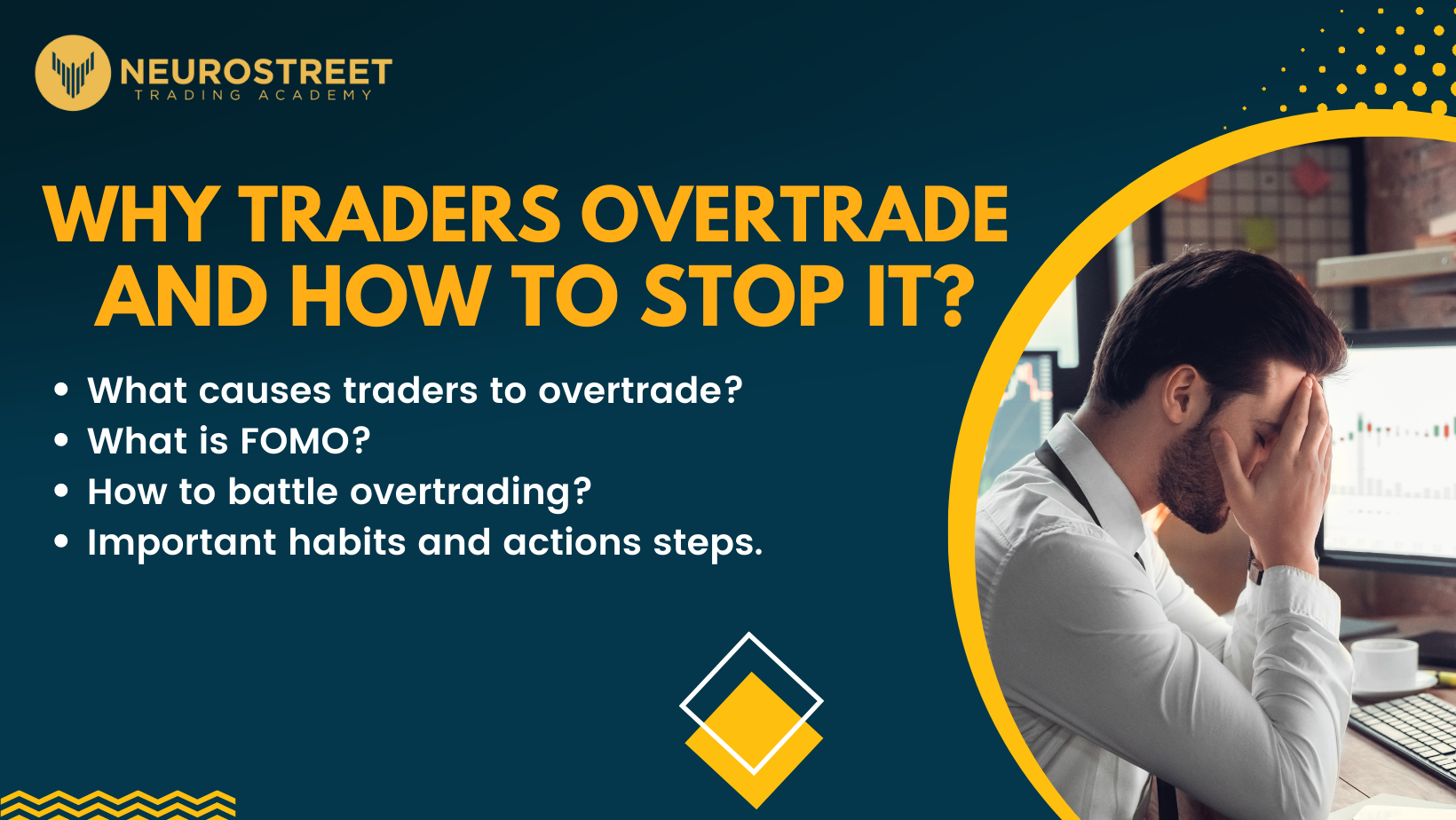Why traders overtrade and how to stop it?
Are you constantly rushing into trades? Thinking it will go without you? Executing trades that are not part of your trading plan, because you feel the market will not provide a setup?
Well, you might be a victim of overtrading – one of the many trading psychology problems traders encounter on their trading journey.
As a trader, it’s important to be aware of the common mistakes that can lead to poor performance and suffering trading losses. One of the biggest mistakes traders make is overtrading, or entering too many trades in a short period of time. This can happen for a number of reasons, including Fear of Missing Out (FOMO), a lack of discipline in sticking to a trading plan, the desire to make money (fast) and not having a long-term vision for your trading business.
Overtrading is a common problem for new traders, as they may feel the need to constantly be in the market in order to make money. However, this approach can lead to impulsive and poorly thought-out trades, which can result in significant losses and losing streaks. Additionally, overtrading can also lead to emotional exhaustion and burnout, which can negatively impact a trader’s overall performance.
How do you feel after a run of overtrading? Tired, exhausted, pissed at yourself and you probably have thoughts of giving up. Remember, that trading is an emotional game and emotions are energy. The more emotional you are, the more energy you consume and the less focused you become when trading.
How to stop overtrading?
To avoid overtrading, it’s important to have a well-defined trading plan that outlines the specific conditions under which you will enter and exit trades. This plan should take into account your risk tolerance, as well as your overall trading strategy. Simply, you need strict rules on when and how to enter, exit and manage your trades. Make it so strict, that it’s impossible to take trades outside of your trading plan.
It’s also important to limit yourself to a certain number of trades per day or week, to ensure that you’re not getting caught up in the excitement of the market and making impulsive decisions. For example, you can only take 5 losses per day. The moment you take your fifth loss, you have to be disciplined enough to close your charts and call it a day. That’s where discipline kicks in!
Another important tool for avoiding overtrading is keeping a trading journal. This journal should include both an emotional component, in which you record your feelings and thoughts before and after each trade, and a technical component, in which you record the specifics of each trade, including the setup, entry, and exit points. Reviewing your journal on a regular basis, such as once a week, can help you identify patterns in your behavior and make adjustments to your approach as needed.
In conclusion, overtrading is a common and potentially costly mistake for traders. By having a well-defined trading plan and limiting the number of trades you take, as well as keeping a trading journal, you can become more aware of your own behavior and learn from your mistakes. Remember, trading is a process of continuous learning, and the key to success is staying focused and disciplined.
So keep learning from your mistakes, keep evaluating your performance and make sure to introduce the right habits to battle your trading flaws.


